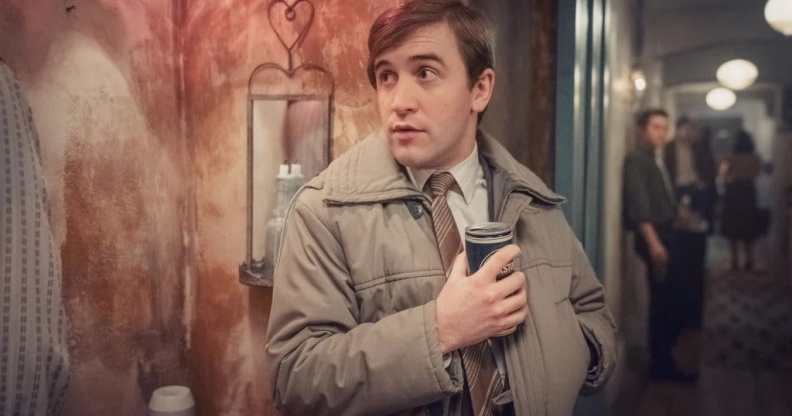It’s a Sin’s adorable, loveable Colin is based on Russell T Davies’ ex-boyfriend

Callum Scott Howells in It’s A Sin. (Channel 4)
Callum Scott Howells in It's A Sin. (Channel 4)
Russell T Davies has revealed that the adorable and loveable Colin in It’s a Sin is loosely based on his ex-boyfriend.
It’s a Sin follows three gay men as they move to London in the early 1980s and end up renting a flat together, which they call the Pink Palace. They live a life of sexual freedom and experimentation for a time – but the arrival of a mysterious illness, said to spread among gay men, changes everything.
The first episode of It’s a Sin aired on Channel 4 on Friday night (22 January), with the rest available to stream on All 4 directly afterwards – and queer viewers were quick to praise it as a “masterpiece”.
Many were also quick to share their love for Colin, a slightly socially awkward gay man who moves in to the Pink Palace after attending a party there – and Davies has revealed that the character has a very personal connection to his own life.
Speaking to Metro, Davies revealed that Colin is loosely based on a man he dated in the ’90s.
“He was someone I went out with in the ’90s who trained to be a tailor and went to New York to fit lords and ladies with their suits and gowns – beautiful man,” Davies explained.
Russell T Davies drew on personal experience when writing It’s a Sin.
The screenwriter said much of the show is “based on myself and people I know and stories of the decade”.
“This series fits my life. I was 18 in 1981. A lot of my gay friends went to go and live in London and they moved into a big flat in Hampstead and they called it the Pink Palace.”
Davies said he knows friends he hasn’t seen in years will watch the show and find much of it “slightly familiar”.
However, not all of his friends are around to appreciate the series, with Davies noting that HIV “claimed a lot of their lives”.
“It’s nice to pay testament just to remember them,” he added.
Callum Scott Howells, who plays Colin in It’s a Sin, told PinkNews on Friday that it was “really difficult” to play a character that has to face into the AIDS epidemic and contemplate death.
But he also spoke of the importance of telling stories about HIV and AIDS, adding: “We’ve got to go there for the people who we lost, for all those people, those poor lives that were cut short.
“We knew we were representing those people. So we had to just go there. And I really wanted to make that my mission.”

